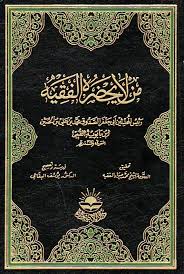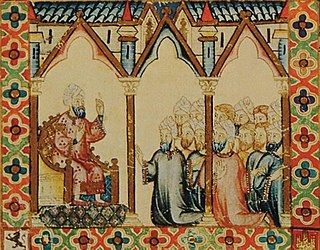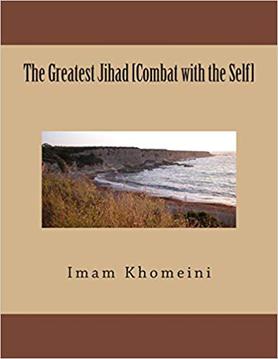Related Research Articles
Year 571 (DLXXI) was a common year starting on Thursday of the Julian calendar. The denomination 571 for this year has been used since the early medieval period, when the Anno Domini calendar era became the prevalent method in Europe for naming years.
Islamic studies refers to the academic study of Islam, and generally to academic multidisciplinary "studies" programs—programs similar to others that focus on the history, texts and theologies of other religious traditions, such as Eastern Christian Studies or Jewish Studies but also fields such as —where scholars from diverse disciplines participate and exchange ideas pertaining to the particular field of study.

Tus was an ancient city in Razavi Khorasan Province in Iran near Mashhad. To the ancient Greeks, it was known as Susia. It was also known as Tusa. Tus was divided into four cities, Tabran, Radakan, Noan and Teroid. The whole area which today is only called Tus was the largest city in the whole area in the fifth century.

A mujaddid, is an Islamic term for one who brings "renewal" to the religion. According to the popular Muslim tradition, it refers to a person who appears at the turn of every century of the Islamic calendar to revive Islam, cleansing it of extraneous elements and restoring it to its pristine purity. In contemporary times, a mujaddid is looked upon as the greatest Muslim of a century.
A biographical dictionary is a type of encyclopedic dictionary limited to biographical information. Many attempt to cover the major personalities of a country. Others are specialized, in that they cover important names in a subject field, such as architecture or engineering.
The Book of Roads and Kingdoms is a 9th-century geography text written by the Persian geographer Ibn Khordadbeh. It maps and describes the major trade routes of the time within the Muslim world, and discusses distant trading regions such as Japan, Korea, and China. It was written around 870 CE, during the reign of Al-Muʿtamid of the Abbasid Caliphate, while its author was Director of Posts and Police for the Abbasid province of Jibal in modern-day Iran.
Abu al-Hasan Ahmad ibn Yahya ibn Ishaq al-Rawandi, commonly known as Ibn al-Rawandi, was an early Persian scholar and theologian. In his early days, he was a Mu'tazilite scholar, but then rejected the Mu'tazilite doctrine. Afterwards, he became a Shia scholar; there is some debate about whether he stayed a Shia until his death or became a skeptic, though most sources confirm his eventual rejection of all religion and becoming an atheist. Although none of his works have survived, his opinions had been preserved through his critics and the surviving books that answered him. His book with the most preserved fragments is the Kitab al-Zumurrud.

Shahab al-Din Abu Hafs Umar Suhrawardi was a Persian Sufi and nephew of Abu al-Najib Suhrawardi. He expanded the Sufi order of Suhrawardiyya that had been created by his uncle Abu al-Najib Suhrawardi, and is the person responsible for officially formalizing the order. Suhrawardi is the author of the ʿAwārif al-Maʿārif, which is recognized as a masterpiece work in Tasawwuf.
Abu Bakr Muhammad ibn Isa Abd al-Malik ibn Isa ibn Quzman al-Zuhri was the single most famous poet in the history of Al-Andalus and he is also considered to be one of its most original. One of the characteristics of his poetry was "satire, verging on the licentious, aimed at religious experts." He deeply admired his "Eastern predecessor" Abu Nuwas.
Josef (Yousef) Waleed Meri is an American historian of Interfaith Relations in the Middle East and the history of religion.
Oliver Leaman is an American professor of philosophy and Zantker Professor of Judaic studies at the University of Kentucky, where he has been teaching since 2000. He specialized in the history of Islamic, Jewish, and Eastern philosophy. He received his Ph.D. from the University of Cambridge in 1979.
Sahl ibn Bishr al-Israili, also known as Rabban al-Tabari and Haya al-Yahudi, was a Jewish Syriac Christian astrologer, astronomer and mathematician from Tabaristan. He was the father of Ali ibn Sahl the famous scientist and physician, who became a convert to Islam.

Man lā Yaḥḍuruhu al-Faqīh is a Hadith collection by the famous Twelver Shia Hadith scholar Abu Jaʿfar Muḥammad ibn ʿAli ibn Babawayh al-Qummi, commonly known as Ibn Babawayh or Sheikh al-Saduq. This work is included among the Four Books of Twelver Shia Islam.

Abū ’Abd Allāh Muḥammad ibn Yūsuf ibn Hūd al-Judhamī, commonly known as Ibn Hud, was a taifa emir who controlled much of al-Andalus from 1228 to 1237. He claimed to be a descendant of the Hudid dynasty which ruled the Taifa of Zaragoza until 1118.
The Seljuk Empire, or the GreatSeljuk Empire, was a high medieval, culturally Turco-Persian empire, founded and ruled by the Qïnïq branch of Oghuz Turks. It spanned a total area of 3.9 million square kilometres from Anatolia and the Levant in the west to the Hindu Kush in the east, and from Central Asia in the north to the Persian Gulf in the south.
Al-Kashkari was a hospital physician from Baghdad.
Aql bi'l fil is a kind of intellect in Islamic philosophy. This level deals with readiness of soul for acquiring the forms without receiving them again.

Jihad al-Akbar is the lectures of Imam Khomeini in Najaf, which was published in 1991 by the institute for compilation and publication of Imam Khomeini's works.
Sa'ib Khathir was an influential Persian musician in the early days of the Umayyad Caliphate (661–750). A freedman (mawla), Sa'ib was responsible for introducing music to Medina. He was killed during the Battle of al-Harra.
References
- ↑ Medieval Islamic Civilization : An Encyclopedia. OCLC 59360024 . Retrieved 8 August 2015– via worldcat.org.